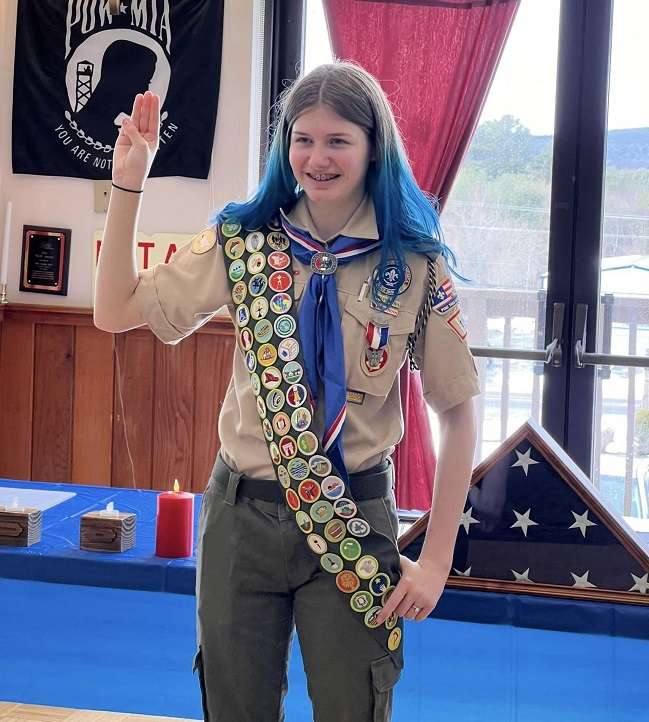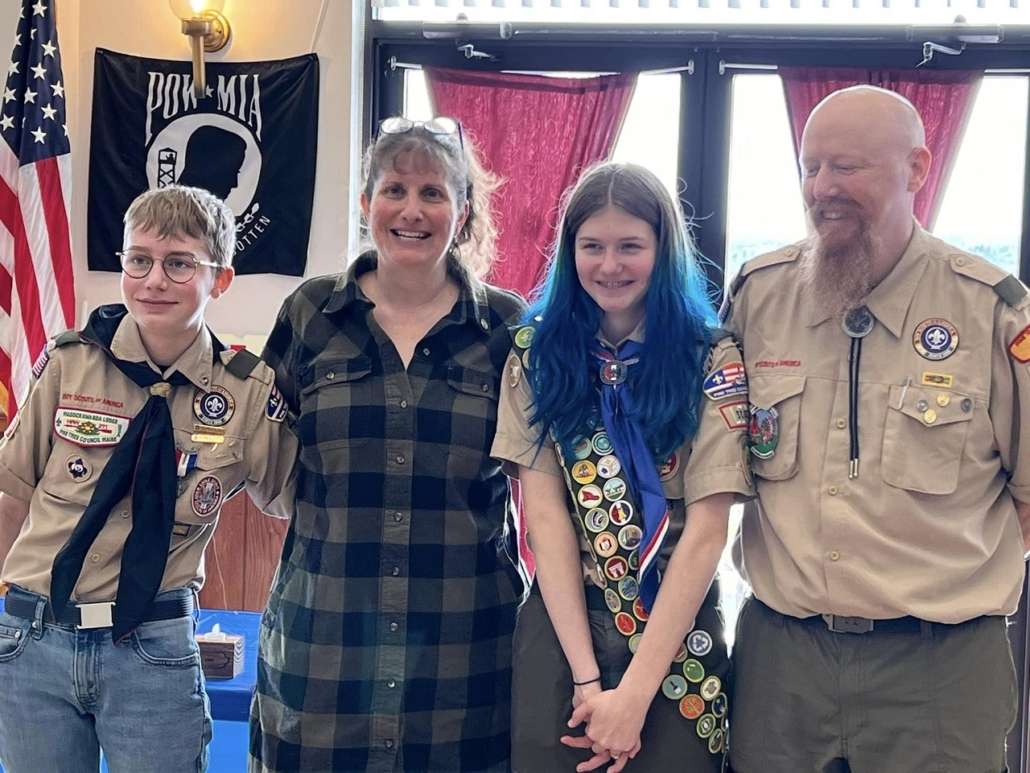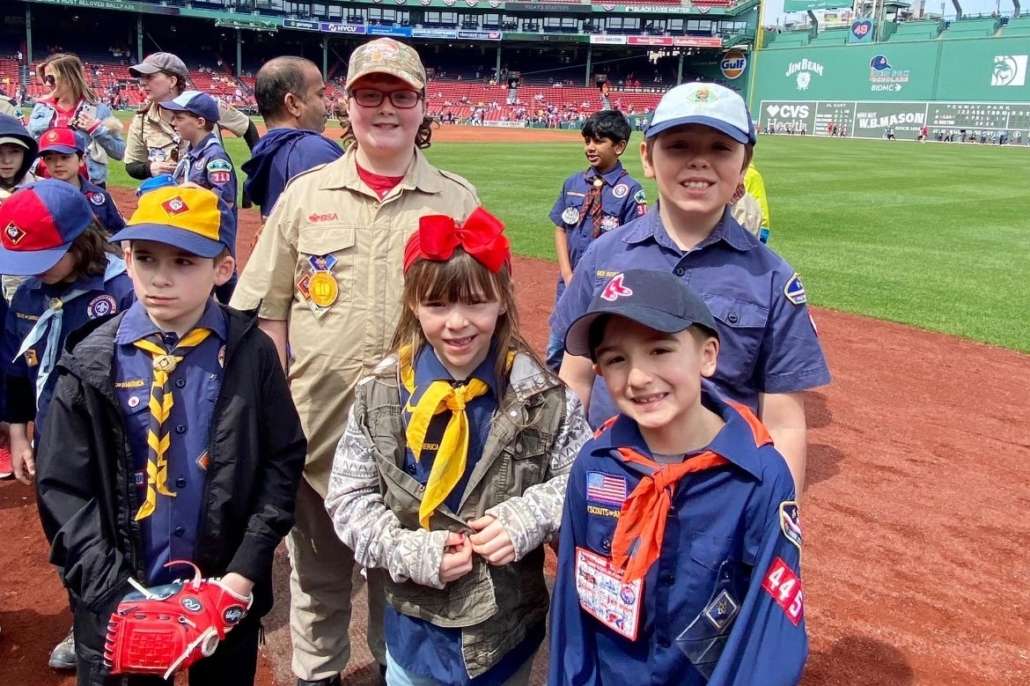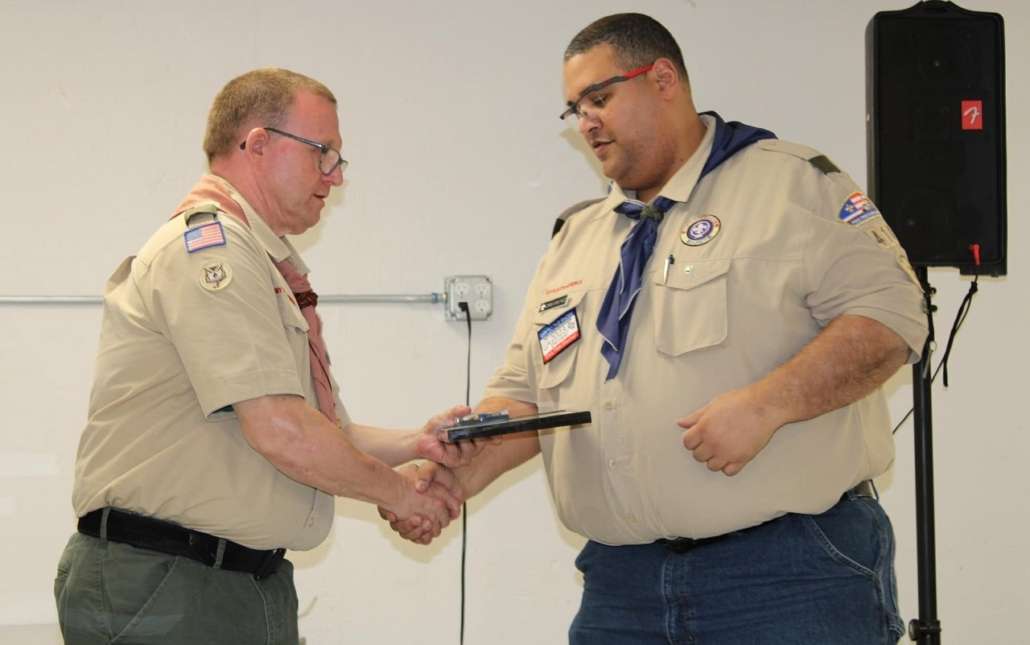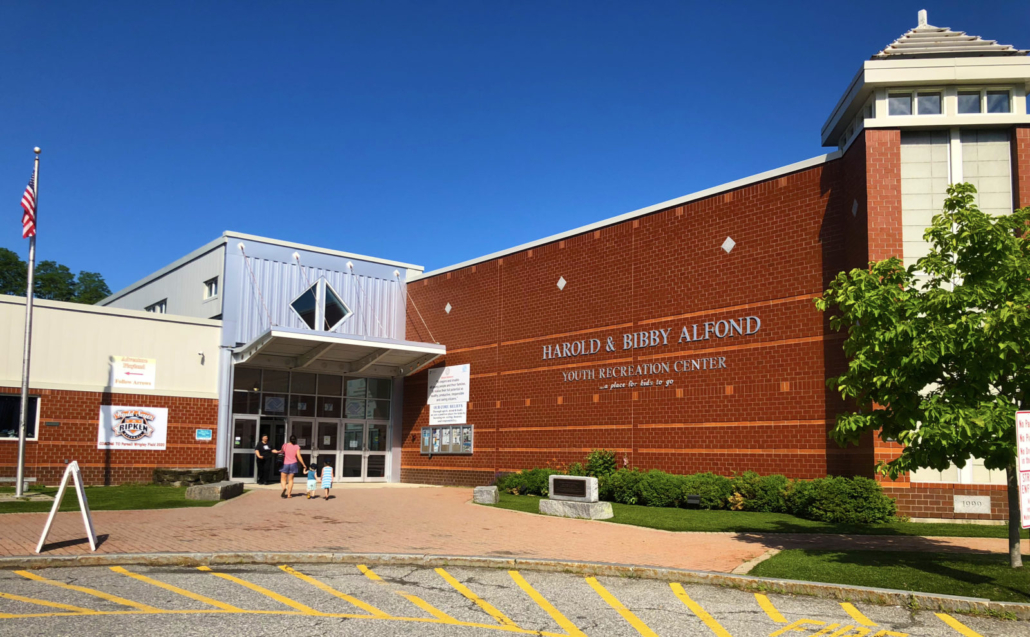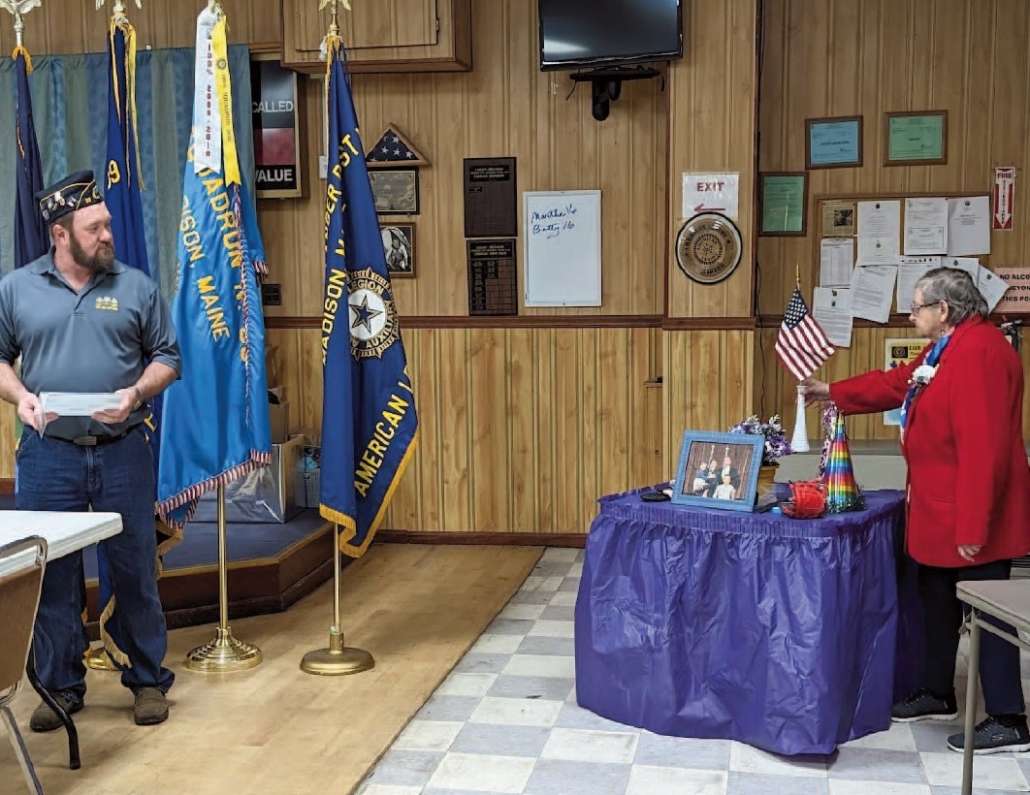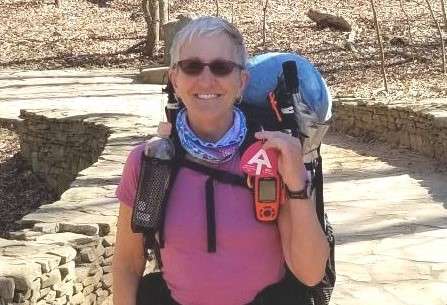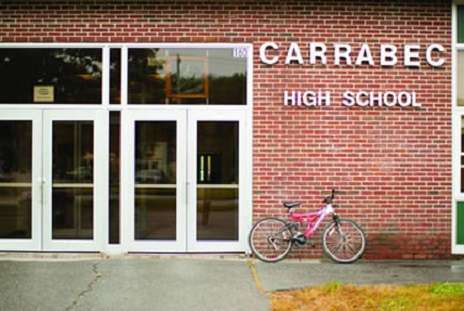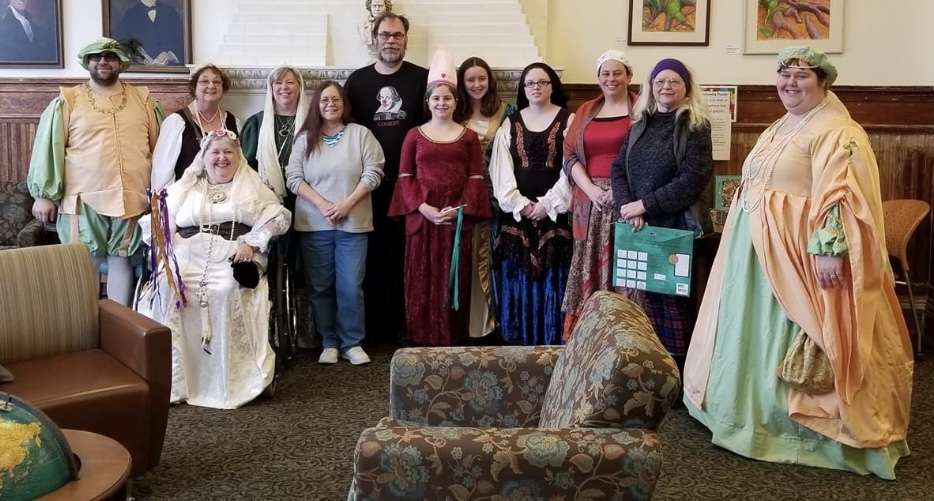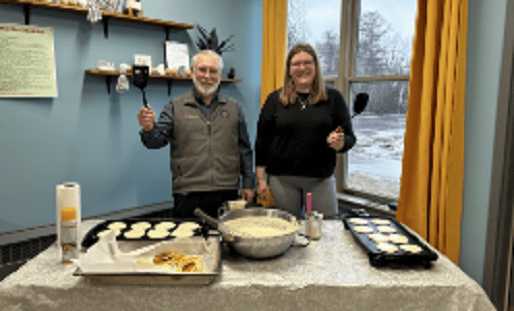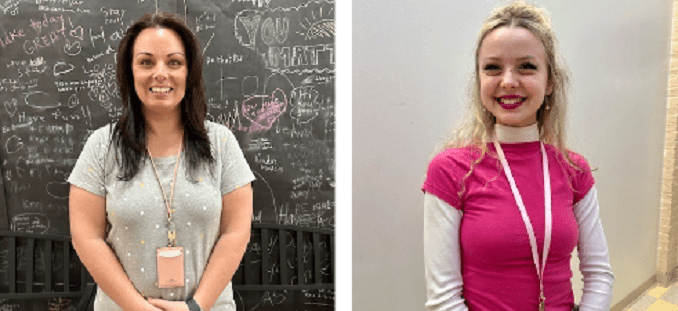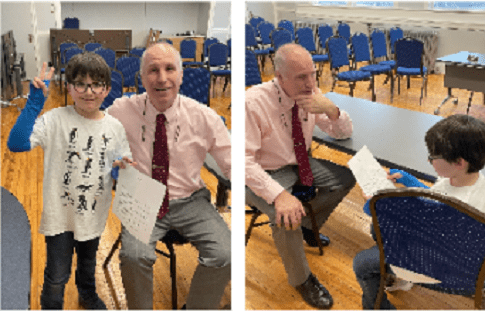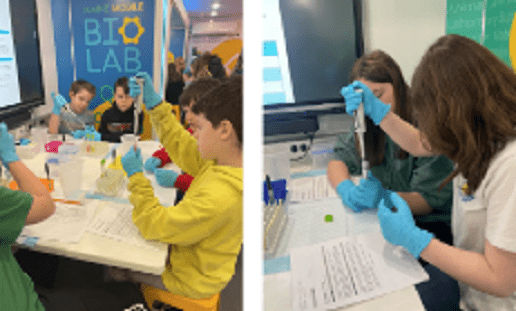Sidney girl achieves Eagle Scout status
by Chuck Mahaleris
Einin Riddle, of Sidney, is just 14 years old but has accomplished something fewer than six percent of all scouts achieve – she earned the Eagle Scout rank.
The event was held at the Augusta Lodge of Elks on Saturday, April 6. She has earned 62 merit badges, her most recent was the Aviation Merit Badge. She has also earned six Nova and Super Nova STEM advancements.
She is homeschooled and is registered in the Lone Scouts program but has been active with Troop #428, in Pittsfield, and is currently a Den Chief helping with Cub Scout Pack #428. Troop #428 Scoutmaster Shelley Connolly presented her with her Eagle Scout certificate.
Connolly serves as her mentor in the Lone Scout program. Riddle plans to attend Thomas College, in Waterville, with a double major in criminal justice and psychology so she can become a psychologist. “My life vision is to be an individual who can help others,” Riddle said. “I always feel great helping other people.” She praised scouting and promised to always live the Scout Law.


